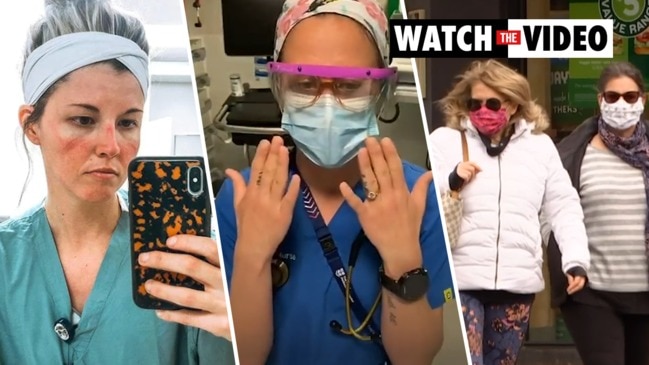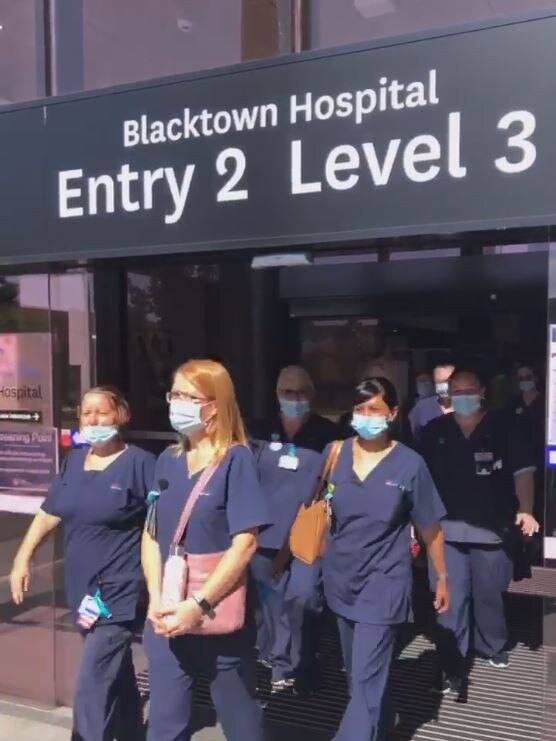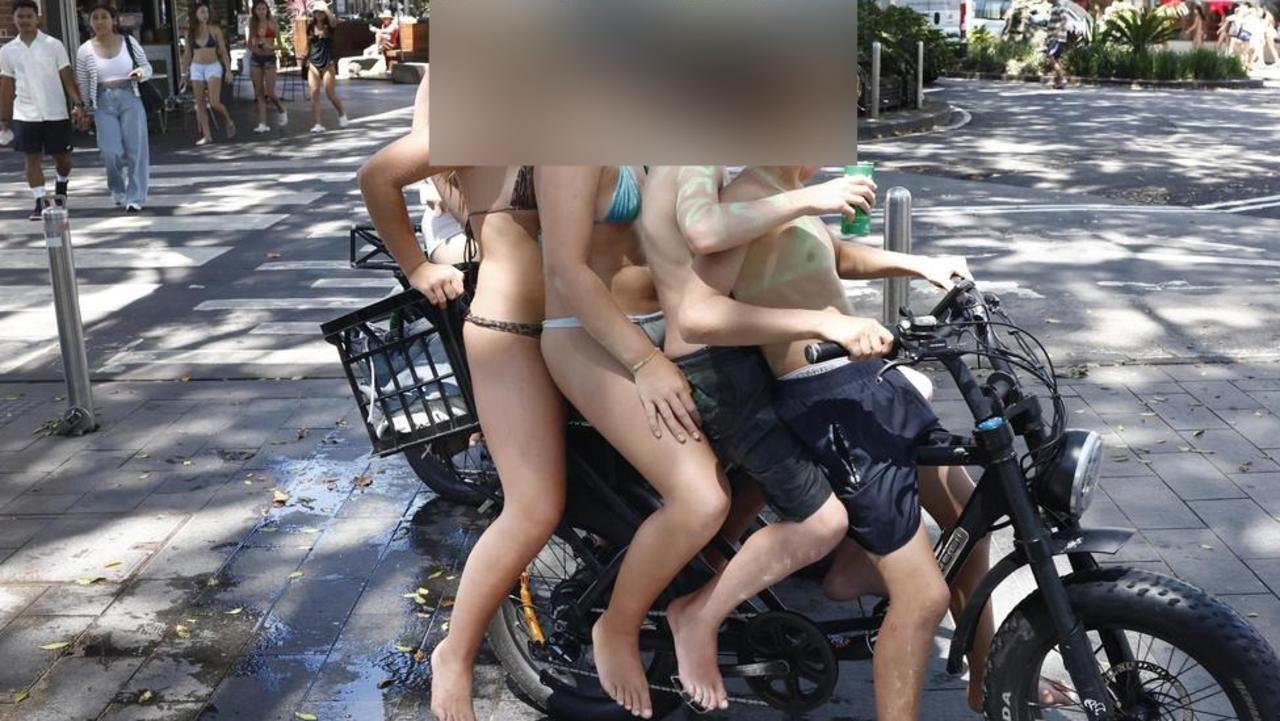Midwives and nurses sent back to Blacktown Hospital
Exhausted nurses who walked off the job over an “untenable” staff shortage at Blacktown Hospital have been forced to return after industrial negotiations failed.

NSW
Don't miss out on the headlines from NSW. Followed categories will be added to My News.
More than a hundred nurses who walked off the job at Blacktown Hospital over staffing shortages which left them “traumatised and fatigued” have been forced to return after industrial negotiations broke down.
The hospital has been in crisis since last week when a group of obstetricians threatened to strike after the death of five newborn babies in 18 months.
On Thursday, midwives walked off the job over an “untenable” staff shortage, but were forced to return on Friday by the Industrial Relations Commission after talks with the local health body broke down.
NSW Nurses and Midwives’ Association (NSWNMA) General Secretary Brett Holmes an agreement despite five hours of discussion.
The Western Sydney Local Health District offered 15 full-time staff to fill existing vacancies and review the current staffing model.
But Mr Holmes said it was not enough to cope with the huge spike in service demand.
“Since 2015, births at the hospital have increased 52 per cent, but staffing levels have only risen 11 per cent,” he said.
“They have experienced extraordinary growth in numbers of babies being delivered but the staffing levels have remained the same.
“Midwives and nursing staff are exhausted and distressed, going to work each day and being asked to do the impossible.”


STAFFING SHORTAGES UNTENABLE’
Health workers have been calling on NSW Health Minister Brad Hazzard to intervene to ensure staffing resources are expedited to the hospital.
Mr Holmes said there was concerned staff had no choice but to return to what they felt were unsafe working conditions.
“For the past two years, our members at Blacktown Hospital have been battling short staffing and workloads issues which were only exacerbated after they relocated to a new, larger birthing unit as part of the hospital’s redevelopment.”
Staffing problems mean midwives are often rostered for multiple day and night shifts of up to 64 hours over seven days — six hours more than the maximum allowed.
This has left workers burning out with fatigue, traumatised by infant deaths and concerned the staffing levels could put their professional registration at risk.
Due to obstetrician shortages, midwives are also being trained to take on more roles, increasing their workloads each shift.
Regularly, they’re also prevented from leaving work early if they miss meal breaks.
Nurses and midwives from #Blacktown Branch are PUTTING PATIENT SAFETY FIRST. They have voted to take 24 hours of Industrial Action to protest rampant understaffing at Blacktown Hospital.#nswpol #ausunions pic.twitter.com/TTfG1wIVpk
— NSW Nurses & Midwives (@nswnma) November 19, 2020
AMA RESPONDS
NSWNMA data stated 4100 births were expected by the end of 2020, almost 400 more than in 2018 when midwifery roles at Blacktown were last increased.
NSW Australian Medical Association president Dr Danielle McMullen said action from the Minister was “promising” but more work was needed to fix the hospital’s situation.
“We think things need to change, there’s increased funding needed due to a number of issues around resourcing … we need to make sure the (maternity) unit can provide good quality safe care to women and families,” Dr McMullen said.
A Blacktown Hospital spokeswoman said Western Sydney Health District executives had met with midwives and the hospital was “committed” to listening to the concerns of staff.
“While the district maintains staffing resources are allocated appropriately in line with relevant regulatory frameworks, discussions were held in good faith about the immediate recruitment of additional staff,” she said.
“Our priority is first and foremost patient care and safety. we remain committed to supporting our midwives and responding to their concerns.”


